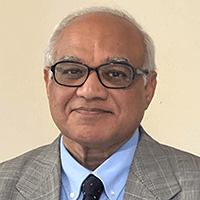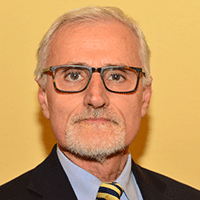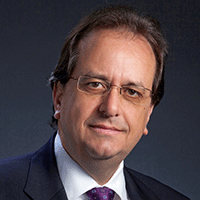Monday, June 26, 5:45 pm - 7:00 pm | Ballroom: A,B & C
Scholar Award Lecture

Rakesh K. Bhargava, Ph. D., ASME Fellow
Founder & President, Innovative Turbomachinery Technologies
Lecture Title: Evolution of Gas Turbine Technologies for Air, Land and Sea: 80+ Years of Historical Overview
Gas turbine technology is one of the major innovations of the 20th Century which has provided society the fastest mode of transportation and one of the cleanest and most thermally efficient means of producing electrical, mechanical and propulsive power. The development of gas turbines has a long yet phenomenal history of technological achievements and the gas turbine is a unique ever-evolving technology due to multitude of parameters affecting its performance as it will become evident in this presentation. Gas turbines have been used in numerous applications, including but not limited to, aviation, power generation, marine, oil & gas industry, chemical plants, energy storage, railway locomotives, battle tank, high speed boats, naval ships, cruise missiles, drones, space program, and others. It is the only power generating machine having capability to operate with wide variety of fuels. This presentation discusses the progress attained over more than 80 years in the development of gas turbine technologies from the perspective of aviation, industrial, and marine applications. The development of gas turbines is illustrated chronologically by examining the progress made in the component’s design, aerodynamic and heat transfer features, combustion, fuel and associated emissions aspects, hot-gas-path components cooling methods, materials, metallurgy, manufacturing, and coatings technologies and other relevant aspects to achieve the current levels of performance advancements. The gas turbine market evolution in conjunction with the technology growth including expected market in the next decade combined with the future prospects of gas turbines in relation to renewable energy mix and use of hydrogen fuel for addressing global warming concern are also included.
Monday, June 26, 1:30 pm – 3:30 pm
IGTTA Award Lecture

Vittorio Michelassi, PhD
Lecture Title: High-Fidelity and Machine-Learning Methods for Turbomachinery in the Age of Energy Transition
Large-scale conversion of renewable, chemical, or potential energy into electricity, mechanical power, or propulsion, will require turbomachines for many years to come. Turbomachines, and gas turbine engines in particular, are undergoing significant changes due to new demanding operating conditions and requirements dictated by environmental concerns, cost, operability, and availability. Consequently, the ever-growing demand for improved efficiency, availability, footprint and cost reduction, does challenge design methods the accuracy of which requires a constant upgrade to keep the pace with new type of fluids, materials, fuels, and manufacturing technologies. The application and development of gas-turbine technology is heavily influenced, and limited, by the quality and capability of the conventional design methods and tools the accuracy of which must be improved, as design uncertainties translate into design margins and ultimately sub-optimal performance. Moreover, in the foreseeable future there will be further step-changes in technology and opportunities the adoption of which will require to reduce the risks associated with designing in unchartered design spaces, or operating machines in unchartered conditions. In the last decade new design verification methods emerged. Such methods offer unprecedented accuracy and use machine learning approaches to take advantage of the availability of massive high-fidelity datasets, intractable with conventional engineering approaches. The absolute accuracy offered by the new digital models will allow shorter time cycle for design-to-market without compromising performance, availability, and cost in the rapidly changing scenario of the gas turbine applications.
Tuesday, June 27, 1:30 pm – 3:30 pm
AETA Award Lecture

Anestis Kalfas, Professor of Fluid Mechanics and Turbomachinery
Department of Mechanical Engineering, the Aristotle University of Thessaloniki
Lecture Title: Accelerating Electrification - Hybrid Electric and Gas Turbine Propulsion
Hybrid electric propulsion has the potential to bring disruptive gains in overall aircraft energy efficiency related emissions. Furthermore, alternative energy carriers such as batteries and H2 have their own limitations related to energy density on board storage respectively, before they are adopted as new means of powering aviation. This lecture focuses on recent Research Innovation activities on the hybridisation on commuter aircraft to:
- Identify merits of hybridisation in regional air mobility and explore the future of Gas Turbine propulsion in the foreseeable future
- Identify the scientific and technical challenges of deploying new propulsive architectures
- Exploit the knowledge gained to upscale technologies in larger aircraft
- Develop and integrate the conceptual design of a near zero emission commuter aircraft, based on hybrid electric propulsion configurations